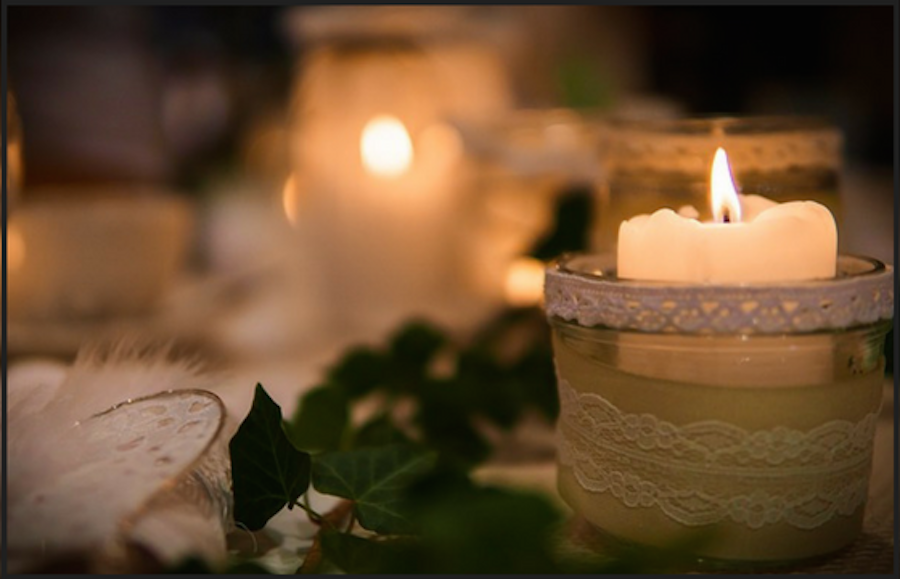I’ve Been Thinking … Holy Week Is A Time to Reflect On Where We Are Broken

I remember the first time my oldest son cut himself. He was a year and a half old. We were in the backyard. It was summertime and he was wearing blue shorts and a white t-shirt. Still wobbly on his legs, he fell on a patch of concrete and scraped his knee. This was a traumatic experience. Not for my son. He was fine. He didn’t even cry. No, this was a traumatic experience for me. I cried!
Obviously, this wasn’t a serious injury, but it was the first time I had seen my son get hurt. As I watched tiny streams of blood form and then quickly dry on his once unblemished skin I realized at that moment that this would be the first of many scrapes, cuts, and bruises—physical, mental, emotional—he would suffer in life. I picked my son up in my arms and carried him into the house to clean and bandage the wound. Then I just held him.
I often think about that incident during the days leading up to Easter known as Holy Week. This is a special time of year, almost always in early spring, to reflect on the places where we are broken in body and soul. It is an occasion to spiritually enter into sacred space in our minds and hearts to meditate on just how fragile and hallowed all life is. And while this might sound a little sad and depressing, it is all preparation for healing and rebirth.
The most dramatic and maybe the most spiritually challenging day of Holy Week, which begins on Palm Sunday and ends on the evening before Easter, is Good Friday. On this day hundreds of millions of people around the world will commemorate—through fasting, prayer, and attending church services—the suffering, crucifixion, and death of Jesus. Yet, you don’t have to be Christian to observe this deeply solemn and reflective time.
On Good Friday we encounter Jesus not as God or the leader of a religion but as a simple and fragile man. Nowhere in the accounts of his life is he more human. On this day, there are no miracles. No sermons. No parables. There’s no walking on water, no turning water into wine. No one is healed and no demons are cast out. The blind, listening to the commotion as Jesus drags his cross through the streets of Jerusalem, never regain their sight. On Good Friday, we find Jesus—once someone’s son with scraped knees—raw and broken. He is, like all of us, vulnerable and subject to great pain.
And yet, regardless of the humiliation and the physical abuse that Jesus endures, he never behaves in typical human ways. When Roman soldiers beat him, he doesn’t curse his tormentors. Jesus doesn’t fight back, doesn’t make a grandstand or charge his followers to riot on his behalf. After his friends abandon him, including Peter, one of his closest allies, he doesn’t cast judgment. Instead, he accepts them for who they are. In the midst of great loneliness, Jesus prays. Standing before his accusers, he remains calm. Bleeding from the brutal assault to his body, Jesus forgives his attackers. As he hangs from a cross, he doesn’t think about himself. Instead, he turns his focus to his mother, brother, and sisters. How would we react if we were put in similar situations? In his endurance, courage, compassion and death, Jesus not only offers us the ultimate example of grace under pressure, but he shows us what it means to be truly human.
Our world seems so divided of late. But regardless of what we believe—whether we’re Catholic, Jewish, Buddhist, Muslim, Hindu, independent spiritual seeker, or atheist—we would all do well to set aside time in the next week to reflect on how we respond not just to our own suffering but to the pain of everyone who falls and scrapes themselves against the rough concrete patches of life. When we do something in us stirs, a stone is rolled away from a place of darkness, and the light of new understanding and appreciation begins to shine in our hearts.
Gary Jansen is the director of Image Books at Penguin Random House and the author of Life Everlasting: Catholic Devotions and Mysteries for the Everyday Seeker and Station to Station: A Journey through the Stations of the Cross.
READ MORE STORIES THAT MOVE HUMANITY FORWARD
READ MORE STORIES THAT MOVE HUMANITY FORWARD
SIGN UP FOR MARIA’S SUNDAY PAPER

